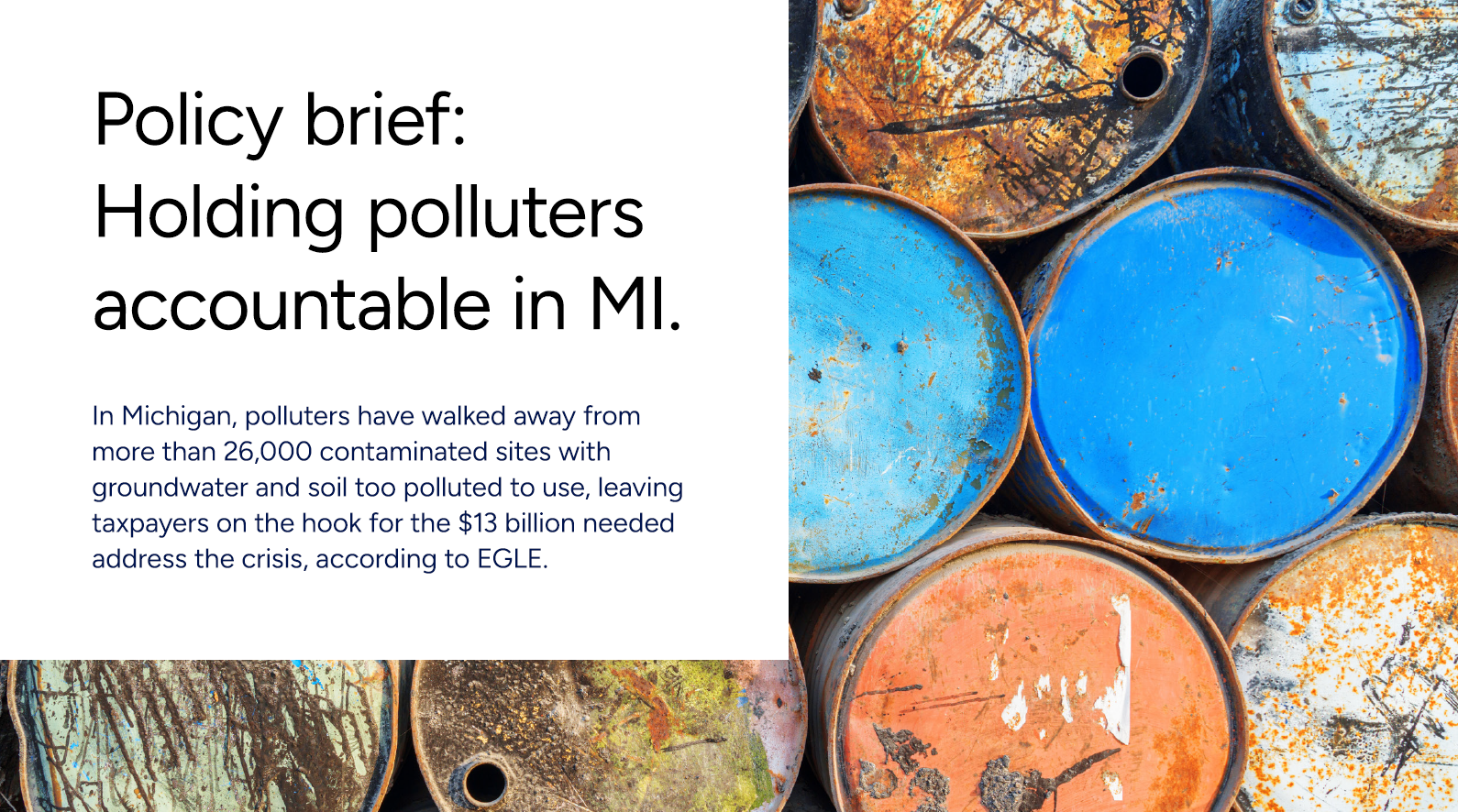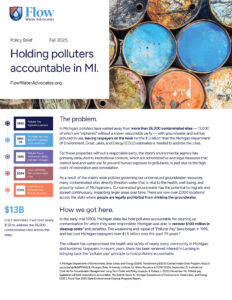
The problem.
In Michigan, polluters have walked away from more than 26,000 contaminated sites — 13,000 of which are “orphaned” without a known responsible party — with groundwater and soil too polluted to use, leaving taxpayers on the hook for the $13 billion that the Michigan Department of Environment, Great Lakes, and Energy (EGLE) estimates is needed to address the crisis.
For those properties without a responsible party, the state’s environmental agency has primarily defaulted to institutional controls, which are administrative and legal measures that restrict land and water use to prevent human exposure to pollutants, in part due to the high costs of restoration and remediation.
As a result of the state’s weak policies governing our undervalued groundwater resources, many contaminated sites directly threaten water that is vital to the health, well-being, and property values of Michiganders. Contaminated groundwater has the potential to migrate and spread continuously, impacting larger areas over time. There are now over 2,000 locations across the state where people are legally prohibited from drinking the groundwater.
Download our policy brief: Holding polluters accountable in MI.
This worksheet breaks down the problem with current laws, how we got here and proposed policy changes to keep Michigan clean and free from corporate pollution.

